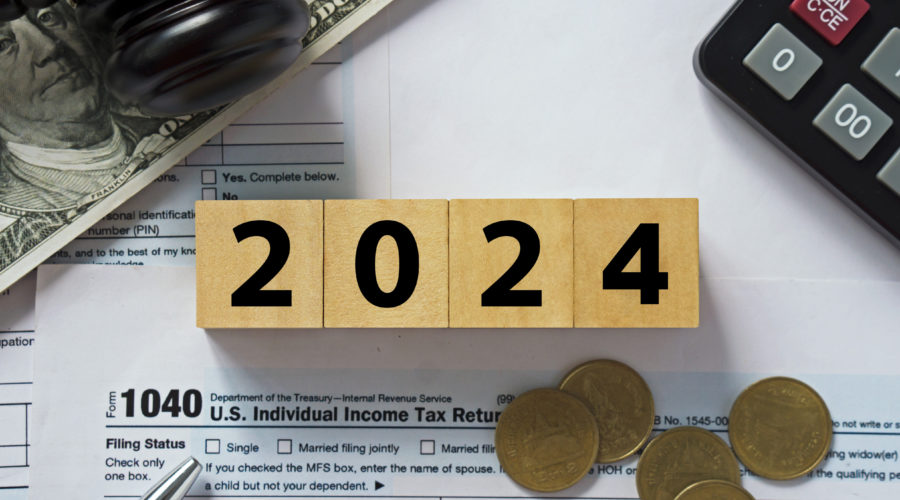With tax season approaching, we thought it was as good a time to discuss tax planning. In general, tax planning is not an easy feat, especially for a business owner. Just thinking about figuring out tax credits, tax liabilities, capital gains taxes and more sends many people into panic. There is a lot more information to gather, review, and report on.
We will begin this article with an overview of many of the facets involved in tax planning. We’ll cover the different aspects of your taxable income that you should be focusing on and various forms and special situations that you may qualify for. Plus, we’ll delve into general investment management with regards to tax planning.
After the overview, we will move into the more specific world of business tax planning.
Many of our clients at Saddock Advisory are business owners. Hence, we know that business tax planning carries with it a whole suite of separate tax rates and tax laws from standard planning, especially this year.
Personal Tax Planning
First, we want to underscore the importance of tax planning. Tax planning does not simply refer to the necessary process of filing your taxes.
The term carries a broader meaning — it refers to fully analyzing your financial situation to pay the lowest amount of taxes that you can.
Every investor should be working tax planning into their long term financial plan. Doing your taxes properly and efficiently is critical to reducing your tax liabilities. But it also allows for having more money to bulk up your savings accounts, put more money into your retirement plan, pay off student loans, and so much more.
We are going to discuss various areas in which you can practice efficient tax planning when you pay taxes, thus yielding the best tax return possible.
Tax credits
We’ll start with an obvious one: tax credits. When considering tax credits, the first thing to do is to be sure not to confuse them with tax deductions.
Tax credits are like gold when it comes to tax planning. They represent a specific amount of money that you can subtract directly (dollar for dollar) from the number that you owe to the government. This means that whatever your tax credit is, you are eligible to lower your tax bill by that same amount.
Tax deductions are also good, just not quite that good. Tax deductions are expenses that you had throughout the tax year that can, for whatever reason, be taken out of your taxable income. Essentially what they do is lower the amount of your income that is subject to taxation.
IRA accounts
Another good way to keep more money in your savings account and give less to the IRS is through individual retirement accounts (IRAs).
Both Roth IRAs and traditional IRAs can be very effective either as a substitute for or in addition to employer-sponsored retirement plans. Each type of IRA offers a distinct tax advantage.
Although you do have to pay upfront, non-deductible taxes to any contributions to your Roth IRA, when you start to take money out, your withdrawals will not be taxed. Even more, any earnings from investments that grow in your Roth IRA are not taxable, thus tax-free.
Traditional IRAs also have significant tax benefits. Depending on the amount and the specific circumstances, the contributions that you make to your traditional IRA may be tax-deductible. You may also defer taxes on any earnings from investments that grow in your traditional IRA.
Tax Audits
Another important facet of tax planning to be aware of is keeping track of all your tax records. This is because you might need them in the uncommon but possible scenario that you are audited.
No one wants to think about this daunting process, but unfortunately, it happens. And if it does your life will be much easier if you are prepared for it.
The rule of thumb is that the IRS will decide whether or not it will audit your tax return within three years of your filing. Therefore, you want to keep your returns and records for at least that long.
There are some scenarios in which the IRS has even longer to decide if it is going to undergo an audit, though:
- if you underreported your income
- wrote off a loss from a “worthless security”
- committed tax fraud
- did not file a tax return
In this case, you should keep your records anywhere from six years for the former to indefinitely. The records you should keep include, of course, any forms you submitted in your tax return such as any income tax records like a form 1040 or 1099. The importance of keeping these records for your long term financial health and investment management cannot be overstated.
For a thorough guide on personal tax planning, see this helpful post.
Business Tax Planning
If you are a small business owner, you have another whole set of tax planning strategies to deal with. For many business owners, efficient business tax planning is more important than ever this year. Many businesses suffered greatly because of the pandemic and the 2020 tax regulations have been altered in some areas.
Getting the best tax return possible has higher stakes than usual this year as well. All of this makes it especially important to be organized and efficient about your business tax planning process.
For the remainder of this article, we will focus on small business tax planning strategies for this tax year. Some are strategies that small businesses should practice every year and others are more specific to the 2020 tax year.
The Tax Cuts and Jobs Act and the CARES Act
First, let’s review the Tax Cuts and Jobs Act. The Tax Cuts and Jobs Act (TCJA), passed in 2017, allowed corporations to claim their unused corporate alternative minimum tax (AMT) in tax years 2018-2021.
The CARES Act (Coronavirus Aid, Relief, and Economic Security), passed in 2020, has given companies several appealing options to get refunds faster. It enables companies to speed up the Tax Cuts and Jobs Act timeline by claiming all of their remaining AMT credits in this tax cycle, thus generating a larger refund for 2021.
That’s not all the CARES Act has done for businesses this tax year, though. It also re-introduced a tax code allowing businesses to report current losses against past income and receive refunds. Beginning in 2018, business’ net operating losses (NOLs) can be pushed back five years and used against taxable income those years to generate a higher refund.
Tax deductions for businesses
There are always tax deductions to keep in mind as well. The CARES Act set up several tax saving initiatives in this arena, notably the retroactive refund for bonus depreciation. Businesses can now receive deductions on qualified expenses dating back to the beginning of 2018. If this applies to your businesses it could be an effective, fairly simple way to receive quick refund money.
Although there were no direct changes made to it through the CARES Act, Section 179 can also be an especially useful form of tax deduction this year. As a refresher, Section 179 allows a business to deduct the cost of certain qualified business expenses, often things like office equipment and supplies.
Did your business benefit from the Paycheck Protection Program’s (PPP) coverage of employee payroll during 2020? Then you may be reporting fewer expenses and a higher taxable income than you would have without the assistance of the PPP.
However, if you took advantage of Section 179 and purchased equipment before the end of 2020, you will have decreased your net income for the upcoming tax year while also receiving a deduction.
Guidance for Tax Planning from Tax Advisors
Business tax planning and filing is already a fairly complex and arduous process, and it is bound to be even more so this year due to a multitude of factors. Not only have businesses faced unprecedented challenges to their income this year, but many have also had to lay off staff. And depending on the staff — can be especially problematic when it comes time to call upon your tax specialists.
The CARES Act and other legislation have some highly effective and useful provisions, but making sure that you are taking advantage of every possible opportunity and using the CARES Act to its fullest extent is by no means easy.
All of this to say that, if you do not already employ a tax advisor, this could be the year to do it.
Having an experienced and qualified professional at your side this year could be extremely helpful both in saving you money and reducing your stress levels over the complexities of this particular tax year.
We Can Help with Tax Planning
There is no shortage of reasons to hire a tax advisor. If your financial situation requires anything more than a simple tax return before tax day, you’re missing out without one. A tax advisor will free you from wondering if you’re making the best tax decisions and will give you more time to do what’s important to you.
Investing in a tax advisor is a great move, but make sure you find the right one. Take the time to look for experience and credentials, and don’t forget to ask questions. When it comes to managing your money, getting the best professional guidance is certainly worth it.
Get in touch with us here to find out how we can help your specific financial needs.
Sources:
https://www.nerdwallet.com/article/taxes/
https://www.investopedia.com/terms/t/



